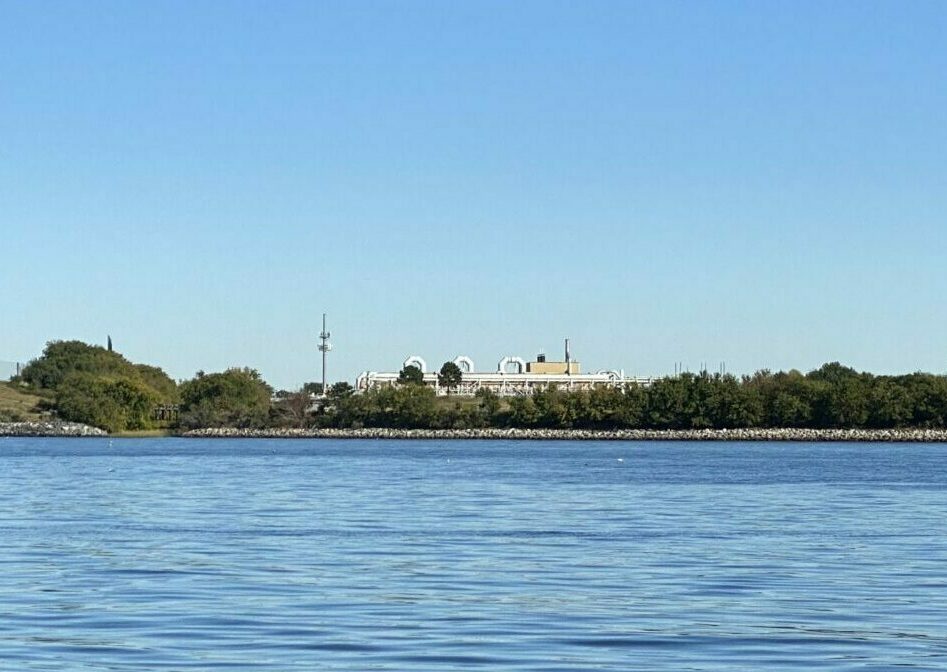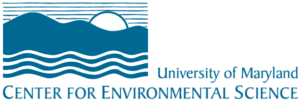Elizabeth River Project
Planetary Technologies is proud to support a research initiative led by the University of Maryland Center for Environmental Science (UMCES), funded by NOAA’s multi-disciplinary Marine Carbon Dioxide Removal (mCDR) initiative. This project aims to improve wastewater quality while exploring innovative solutions for carbon removal to address climate challenges.
Key Points
- Scientific work: We are researching a process to improve the water quality of the Elizabeth River by reducing its acidity levels. We will optimize the use of National Science Foundation (NSF) Certified alkaline minerals to treat wastewater from Hampton Roads Sanitation District- Virginia Initiative Treatment Plant (VIP), helping to protect this important part of the river. We aim to assess the efficacy of a Marine Carbon Dioxide Removal (mCDR)-Ocean Alkalinity Enhancement (OAE) process to reduce acidification in the Estuary.
- Socio-economic considerations: We will be looking at ways this project can benefit the local economy, support businesses, and improve infrastructure, with the goal of creating positive outcomes for both the community and the environment.
- Community Focus: We’re dedicated to working closely with local communities, Indigenous groups, and others to ensure your input is part of our process. We’ll be creating opportunities for you to share feedback, so that we can incorporate the community’s needs into our work.
Quick Facts
- Project Start:
- Phase 1: Completed in October 2024
- Phase 2: Projected for April 2025
- Partners: University of Maryland College of Environmental Sciences (UMCES), University of Delaware (UD), Hampton Roads Sanitation District (HRSD)
- Funding: NOAA’s MCDR Initiative
- Location: Elizabeth River
A timeline of scientific research can be found on our project webpage here.

Our Commitment to Community
What This Means for Our Community
Planetary prioritizes community involvement, recognizing the importance of transparency and local input. We’ll host forums and feedback opportunities to ensure your voices are heard and integrated into the project.
Minimal Disruption
While we conduct this research, you may see monitoring equipment or personnel near the HRSD-VIP region of the Elizabeth River. However, we expect no disruptions to daily activities, traffic, noise, or water quality.
Positive Impact
This project aims to protect our local waterways and explore climate solutions that could benefit future generations. The findings will be shared with the community, contributing to local environmental stewardship and broader climate mitigation efforts.
Co-Benefits
Shellfish— such as oysters and mussels—stand to benefit from water quality improvement and acidity reduction activities such as this. Recent research indicates increasingly acidic waters are harming ecosystems where oysters and mussels live. This project will explore these possible benefits.
Socio-Economic Benefits Evaluation
As part of this project, we’ll evaluate potential socio-economic benefits, such as improvements to local infrastructure, businesses, and livelihoods, ensuring that our work supports the well-being of the community and the environment.
Why Here?
The Elizabeth River site offers a unique opportunity to study an estuarine environment, distinct from the open ocean. This site, near the University of Maryland and University of Delaware, benefits from a wealth of baseline data and scientific expertise. The VIP plant, known for its leadership in wastewater treatment, ensures a base for precise monitoring, allowing us to collect the best possible data for our project. With high-quality ocean models already in place, the site is ideal for researching de-acidification in a region threatened by increasing acidification. Additionally, the Elizabeth River’s history of environmental restoration makes it an ideal location for furthering efforts to recover and protect marine ecosystems.
Scientific Research Goals and Partners
This UMCES-led scientific research, funded by NOAA, seeks to understand the effectiveness of improving wastewater quality through alkalinity enhancement in reducing acidification. This will be studied at Hampton Roads Sanitation District’s (HRSD) Virginia Initiative Plant (VIP), where additional National Science Foundation (NSF) certified alkaline minerals will be added to wastewater before it is discharged into the Elizabeth River. The research addresses water quality and also explores the potential of alkalinity enhancement as a scalable method for carbon dioxide removal, advancing global climate solutions.
Key Partners
- University of Maryland Center for Environmental Science (UMCES)
- Hampton Roads Sanitation District (HRSD)
- University of Delaware (UD)
- Funded by NOAA’s Multi-Disciplinary Carbon Dioxide Removal Initiative
Compliance
This research complies with regulatory standards set by the Virginia Department of Environmental Quality (VADEQ) and EPA, ensuring environmental safety throughout the process.
Who is Participating?
This project is being executed jointly by members of several public and private groups. Collaborating institutions include:
The University of Maryland Center for Environmental Science (UMCES), which has developed an international reputation in coastal science and contributed to the revitalization of Chesapeake Bay. Doctors Jeremy Testa and Ming Li, both of the UMCES, serve as this project’s Principal Investigator and lead on hydrodynamic-biogeochemical models.
The University of Delaware School of Marine Science and Policy (SMSP), which is committed to advancing the understanding, stewardship, and conservation of estuarine, coastal and ocean environments. The school’s Dr. Wei-Jun Cai will lead this project’s observational program.
Hampton Roads Sanitation District (HRSD) is the outfall partner on this project. They have made their infrastructure available for use and are supporting this research as part of their investigation of new ways to reduce the environmental impact of wastewater treatment. Dr. Charles Bott is HRSD’s chief operator.
Stay Connected and Informed
Want to get involved?
Stay up-to-date with the latest developments in this research and upcoming community engagement plans. Sign up for our newsletter to receive updates and opportunities to participate.
Questions?
We’re here to help. Reach out to us at elizabethriver_project@planetarytech.com for more information or to discuss the project further.



